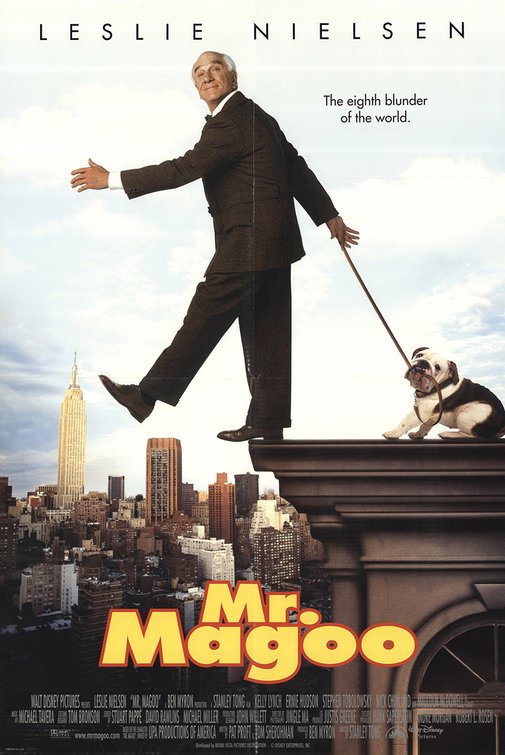By Catherine Clinch
Recently, VARIETY presented the first The Family Entertainment & Faith-Based Summit in association with Rogers & Cowan, and sponsored in part by MOVIEGUIDE(r). These particular markets are not typically at the top of Hollywood’s priority list, so it was surprising to see that the conference room at Sofitel Hotel was packed at this sold-out event. While it is a tribute to the fact that the VARIETY Summits are always exceptional experiences, it’s important to note that attendees were equally divided between Christian Pray-ers and Hollywood Players.
One of the most important accomplishments of this Summit was the clarification of definitions. Everyone agreed that while “family” is often referred to as a genre, it is actually a market segment. Families, in fact, enjoy all genres. Speakers repeatedly stressed the difference between Faith-Based (obvious religious content) and Faith-Friendly (content that is not obviously religious but supports and/or does not assault religious sensibilities). To VARIETY’s credit, this was the first presentation I have seen on this topic where other faiths were repeatedly referenced and represented through the inclusion of panelists like Greg Liberman, President & CEO of Spark Networks whose holdings include the Jewish relationship service J-Date. One particular moment resonated deeply with attendees – the recitation of something Jeffrey Katzenberg said in 1993 when he was Chairman of Disney: “Each of us in Hollywood has the opportunity to assume individual responsibility for creating films that elevate rather than denigrate, that shed light rather than dwell in darkness, that aim for the highest common denominator rather than the lowest.”
The program offered research data and case studies, including a report from Dick Rolfe, CEO of The Dove Foundation. Their Film Profitability Study 2012 – covering the top 200 theatrically released films for each year between 2005 through 2009 – revealed an interesting discrepancy between ratings and profitability.
The MPAA ratings breakdown of 1000 films released in this 5-year period was:
- 38% Rated R
- 41% Rated PG-13
- 18% Rated PG
- 3% Rated G
Compare this to the Average Profit of a film by MPAA ratings:
- $108.5 million Rated G
- $65.5 million Rated PG
- $59.7 million Rated PG-13
- $12.7 million Rated R
Clearly, there is a disconnect. While bemoaning the fact that box office profits are declining, Hollywood continues to focus on the least profitable content spectrum. If G-Rated films are 8.5 times more profitable than R rated films, what is accomplished by under-serving this consumer base?
Ben Simon, Director at Walmart and Co-Chair of the Association for National Advertisers Alliance for Family Entertainment discussed the lack of quality family programming inventory on television. “This is the biggest bulls-eye for advertisers,” he explained, stressing the need for family programming to evolve. “It doesn’t have to live by the language of the past, but it has to be authentic or the audience will tune out.” The AFE funds development of programs that encourage co-viewing by multiple generations within a family.
One of the most surprising revelations of the day came from Executive Producer Mark Burnett. As it turns out, the man who is infamous for stranding a group of strangers in a remote location and convincing them to fight over a bag of chips is a devout Christian. Burnett presented footage of his epic miniseries of THE BIBLE for History Channel (co-produced with his equally-devout wife, Roma Downey.) He believes the Bible is one story, “An epic book with an arc. The story is going somewhere. It is all connected and seamlessly woven.” If the presentation trailer is any indication, THE BIBLE will be a remarkable experience for all audiences, with a significant crossover to History Channel’s pre-established audience of history buffs. This kind of crossover appeal should be the goal of all television programming.
Dr. Ted Baehr, Founder & Publisher of Movieguide reminded us that the early days of cinema were filled with Biblical passion plays and were frequently shown in churches. “People respond to them because they speak to scriptural truth and reinforce their values.” In his 2012 Report to the Entertainment Industry, Baehr offered The Top 25 Box Office Hits of 2011. An interesting pattern emerges from his data:
The Top 25 Box Office Hits of 2011 break down by ratings:
G 2 both animated
PG 5 all animated
PG13 14 9 Fantasy/SciFi; 1 Action Comedy; 1 Action/Mystery; 1 Action/Thriller; 1 Spy/Thriller; 1 History/Drama
R 4 3 Raunchy Comedy; 1 Horror
It seems that the two most profitable rating categories have been relegated to animation. The third is dominated by science fiction and fantasy. In other words, this audience is completely under-served with regard to live action stories that reflect their beliefs, aspirations and experience.
One of the more astute comments of the day came from Rich Peluso, VP of Affirm Films at Sony Pictures Entertainment, who summed it all up: “More than 150 million people go to church every Sunday. We know where to find them.” It’s a mystery why the entertainment industry doesn’t put more effort into reaching this enormous audience share.
So, what does it all mean?
Over the course of decades, the image of the Hollywood producer has been sullied and vilified. In the typical film, producer credits are handed out like trading cards to anyone blessed to bring one or more elements to the table. Yet, nestled amidst the litany of names are a core group of people who actually make the magic happen. This is the point where true change can be accomplished. These producers already possess the blend of fearlessness and responsibility that is necessary to achieve the alchemical equation that turns 120 pieces of used paper into a movie that can incite our emotions. They find the script and they find the funding and they assemble the right elements. Then, they put it all together in a creative recipe that will ultimately make us think and feel and laugh and believe. In essence, they have the courage to trust their gut. Beyond all this, any producer who intends to reach out to the family friendly, faith friendly and faith based audience needs to have an inner strength to push past the clutter of negative and demeaning stories that have become so prevalent. They must shoulder the courage to go against the conventional wisdom, to take the path that is morally correct and – ironically – potentially very lucrative.
That being said, the entertainment industry faces a series of problems that these Hollywood producers could easily fix.
Problem 1: DVD revenues are declining.
Problem 2: Foreign revenue is becoming increasingly important in replacing the diminishing funds from DVDs.
Problem 3: Mounting costs of production create higher stakes for every studio film.
Problem 4: Independent films may appeal to niche audiences, but as part of the proverbial “long tail” they are harder to market.
There is a simple solution to all of these problems. It doesn’t have to impair creative integrity and it doesn’t have to impact the entire industry. It’s a simple add-on that more than pays for itself. Bring back – and redefine – the G-rated movie.
As Dr. Ted Baehr has repeatedly demonstrated in his Annual Report to the Entertainment Industry, G-rated movies comprise the biggest percentage of DVD sales. They pass the foreign censorship rules. They don’t cost as much to produce because they don’t require expensive star talent. They don’t take a lot of effort to market because an under-served segment of the population is eagerly looking for them. With a clear and acceptable distinction between the designations of “faith based” and “faith friendly” there is a well-defined path for commercially viable films to cross over from the faith based audience to the secular audience. And, here’s the best news of all – just because something is G-rated doesn’t mean it has to be a kid’s movie!
“Citizen Kane,” “It’s A Wonderful Life,” “Casablanca,” “Mr. Smith Goes To Washington,” “The Great Escape,” “The Lion In Winter,” “Inherit The Wind,” “Rear Window,” “Twelve Angry Men,” “North By Northwest,” “Stalag 17,” “Ben Hur,” “The Grapes of Wrath,” – and hundreds of other classics are all G-rated. Why is this concept so difficult for Hollywood producers to accept? I am at a loss to understand why the inclusion of sex, violence and/or profanity is so important to our creative community that even animated features aspire to a PG rating. I’m not saying every movie should go in this direction – but the inclusion of a few G-rated films from each of the studios is all it will take to raise the profit column in every quarter. All that remains to be seen is which producers are willing to stand up to this challenge.
CATHERINE CLINCH has written scripts for successful television series including HUNTER, JAKE & THE FATMAN, KNIGHT RIDER, THE LOVE BOAT, HART TO HART and most recently RESCUE BOTS. She teaches mass-communications and media theory for the Department of Mediated Studies and Distance Learning at California State University Dominguez Hills. Her MEDIA GRAZING column appears weekly in Film News Briefs. She is in the startup stage of a production company (www.NuclearFamilyFilms.com) that will be devoted exclusively to family friendly and faith friendly content. She can be reached at: catherine@catherineclinch.com.
Now more than ever we’re bombarded by darkness in media, movies, and TV. Movieguide® has fought back for almost 40 years, working within Hollywood to propel uplifting and positive content. We’re proud to say we’ve collaborated with some of the top industry players to influence and redeem entertainment for Jesus. Still, the most influential person in Hollywood is you. The viewer.
What you listen to, watch, and read has power. Movieguide® wants to give you the resources to empower the good and the beautiful. But we can’t do it alone. We need your support.
You can make a difference with as little as $7. It takes only a moment. If you can, consider supporting our ministry with a monthly gift. Thank you.
Movieguide® is a 501c3 and all donations are tax deductible.

Now more than ever we’re bombarded by darkness in media, movies, and TV. Movieguide® has fought back for almost 40 years, working within Hollywood to propel uplifting and positive content. We’re proud to say we’ve collaborated with some of the top industry players to influence and redeem entertainment for Jesus. Still, the most influential person in Hollywood is you. The viewer.
What you listen to, watch, and read has power. Movieguide® wants to give you the resources to empower the good and the beautiful. But we can’t do it alone. We need your support.
You can make a difference with as little as $7. It takes only a moment. If you can, consider supporting our ministry with a monthly gift. Thank you.
Movieguide® is a 501c3 and all donations are tax deductible.




 - Content:
- Content: 

